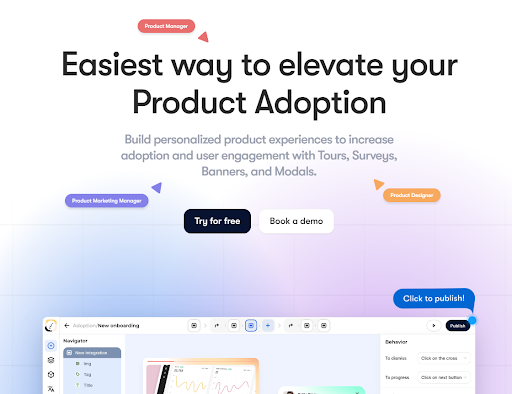
If you are reading this article, your hosting environment is probably secure, where it is managed by you or someone else. However, we live in a digital world where we are required to adapt to the constant changes that happen around us. The problem here is that it could be hard to know about changes and attacks before they happen to you if you are not experienced in this sphere. That is why companies should monitor the market, searching for recommendations from experts and cyber specialists to boost the security of their web apps.
One of the most popular questions today is how to reduce the attack surface and remove easily detectable risks. Even though this article won’t become your ultimate manual of the perfect web application defender, it will showcase a list of items that you may consider and apply on a regular basis to increase the security of your web app.
Have a Strong Enterprise Security Policy
Security is a top priority for most companies now as they know how costly mistakes or lack of cybersecurity can be. But most of these companies invest in all possible measures forgetting about the biggest cause of attacks – the human factor. Regardless of the size of your company, you have employees. And these employees have access to sensitive business data. So if they don’t know about threats and attacks, they may accidentally give the access to this access to hackers pretending to be trustworthy sites or links. Therefore, the first step in boosting your web app security is to create a strong security policy at the workplace for all teams.
Remove Useless Portions of Your Web App
Before exploring the security of your web app, the first thing you can consider is eliminating the potential attack surface by reducing the number of apps you have. Whether these apps are in production or staging environments, they extend your attack surface. Therefore you need to explore what web apps are useful and what are old and can be reduced. It is also recommended to check the features, extensions and APIs you use since they create new ways for attackers to steal your data. Consider openappsec to automate your web app and API security.
Ensure Sensitive Data Architecture Security
Another way for attackers to get access to your data is “human errors”. To put it simply, information leaks related to your application itself. If you develop a web app, you must ensure that you hire experienced engineers knowing how to create safe and stable architecture. Only skilled developers know how to better protect your sensitive data from unwanted access.
Run a penetration test
Nothing is better than including penetration testing in your web app security practice. This is considered one of the most important and effective methods to find web app vulnerabilities. Penetration testing refers to a practice where cyber specialists mimic attacks using the same tools and technologies as attackers would. This practice allows companies to estimate their vulnerabilities and the effects of successful attacks on their business.
Perform Code Reviews Focused on Security
Code reviews are essential. Even though some companies believe that security is an extra practice, the truth is that proper cybersecurity starts from the development stage. That is why code performance should be included in your web Software Development Life Cycle (SDLC). For example, perform your code security as well instead of focusing only on software architecture.
Interesting Related Article: “Cyber Security Trends to Watch in 2022 — 6 Things That Could Compromise Your Safety Online“


;Resize=(1200,627)&impolicy=perceptual&quality=mediumHigh&hash=c25861d5a3e7323a244c80f407c14312be6b4f867a617ec2c2d39decfdc3da6c)
;Resize=(1200,627)&impolicy=perceptual&quality=mediumHigh&hash=a521ccfaa540906e2b16caba099cb3537be1a4292aa85d45201b0bf06937ca7e)
;Resize=(1200,627)&impolicy=perceptual&quality=mediumHigh&hash=9dbe3f2eb4d54e3e2dc646afd273c8696e20e2b04367e10abec858e6ce738ce9)

;Resize=(1200,627)&impolicy=perceptual&quality=medium&hash=deceb629d0063c231d17e16f3cadd67f29aa348859463db90f66fdfefe5a0480)








;Resize=(1200,627)&impolicy=perceptual&quality=medium&hash=1a117f7c3e01126ce435b20a7a136eef5a5a7e00df3ebb6c2aa8e7ba60f4823d)

